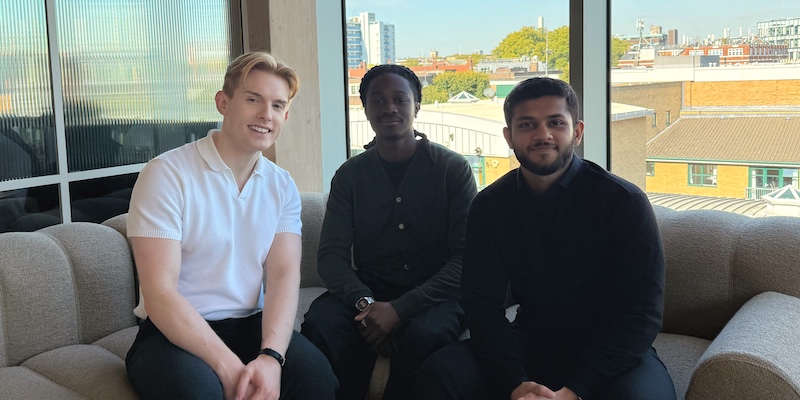
Four propositions for a better future
2021 is almost coming to a close. And whilst it’s usually a time for reflection, we’re currently in a state to look forward, gearing up to invest in the next batch of amazing founders wanting to tackle to world’s pressing social and environmental problems with tech.
In case you missed it, applications for our next programme are open until 9th Jan 2022. With the outlook to investing in founders building tech for good startups comes a constant reminder to envision what a better world looks like.
At BGV, we’ve got a range of opinions. From your practical optimists to your cynics and pragmatic souls - but we’re united in the belief that we need to consciously put capital towards founders building tech for good businesses to tackle some of the biggest social and environmental problems of our lifetime.
As tech for good investors, two considerations are critical in making decisions – 1) how will the investments we make have a material positive impact on people and planet, and 2) how are technologies past and present reshaping our future.
At BGV, we run regular exercises to collectively envision and share technology ideas rooted in our principles. The latest of these exercises involved a future scoping exercise using the oracle for transfeminist technologies, with mixed results but interesting propositions for a better future. As we move forward, we wanted to bring you four propositions for a better future and where we might see tech play a role.
1. Achieving a net-zero future
There’s no denying that we need to tackle the climate crisis urgently. With a rise in climate tech investments, and more VCs focused on the E of ESG investing, we’ll hopefully see more startups emerge, creating solutions not only to adapt to a rapidly changing climate but also mitigate some of the dire consequences. We often forget that a shift to a net-zero future also requires helping existing polluting industries transition, so we can collectively make meaningful progress towards achieving net-zero targets. So from promoting a circular economy and responsible consumption to tackling rising food insecurities and strained supply chains, to drastically reducing carbon emissions, we’re interested to see innovations that:
- Develop or create more energy-efficient processes and products
- Deploy renewable energy sources
- Decarbonise shipping and adopt more sustainable transportation and infrastructure
- Reduce deforestation and curb the loss of biodiversity
- Increase soil carbon storage
- Manage sustainable land use and forestry practices.
2. Creating a fairer future of work
Even before the pandemic, we’ve witnessed an increase in precarious work globally. But the pandemic has undoubtedly exacerbated the risks to the livelihoods of millions of people across the world. The severe lack of social safety nets and growing income disparities have left many in vulnerable situations. Working with our partners at the Resolution Foundation, we’ve always envisioned a world where we see founders actively address the many challenges surrounding worker pay, power and progression. To truly shape a fairer future of work, we want to see innovations that:
- Improve the working conditions or provide social protection for those in low-paid or insecure work
- Find new ways to reskills and upskill disadvantaged workers
- Prepare young people for a drastically changed labour market and transformation towards a net-zero economy.
For more insights on WorkerTech, do check out our WorkerTech Dispatch.
3. Ensuring access to affordable healthcare for all
The last two years have exposed the inequalities and failures in our health care systems. In many ways, it has shown us that despite an accelerated pace for adopting technologies in dealing with the pandemic, much more needs to be done to ensure everyone has access to affordable healthcare. We’re interested in innovative technologies that:
- Provide access to healthcare to build and boost resilience for good physical and mental health
- Strengthen systems and safety nets to prevent people from falling into poor health
- Reduce the burden of non-communicable diseases and mortality
- Support the detection and treatment of infectious diseases.
4. Reducing inequalities for a better society
The rise in inequality, whether in income, wealth, opportunities or other dimensions, has had a devastating effect on accessing educational opportunities and social mobility, resulting in a less productive, less happy and less healthy society. With rapid urbanisation, changing demographics, predicted mass migration due to climate change and people seeking access to economic opportunities and quality education, we see a huge opportunity to ensure we’re creating a better and more equitable society for everyone. We’re interested in innovative technologies that:
- Reduce the income and wealth gap and tackle extreme poverty
- Tackle violence and online harm for disadvantaged people
- Create opportunities for equal participation in education and training
- Reduce social isolation and foster social cohesion.
As always, this list is not exhaustive and we see many opportunities for a better future. This year alone, we’ve made 20+ investments into tech for good companies driving positive outcomes for people and planet as part of our Tech for Good programme. And we’re excited to back many more teams building tech for good businesses for a more equitable and sustainable world. If that’s you, make sure to check out our application page and apply.





